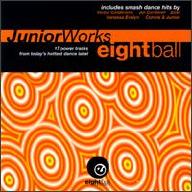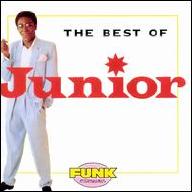Born in London, Junior Giscombe grew up listening to his older brothers' and sisters' record collection, which included the doo-wop of the Moonglows, the Dells, early Motown, Otis Redding, and the reggae music of Toots and the Maytals and Bob Marley. Though as a teenager he sang lead in a local band, music more or less remained a hobby until he chose a full-time music career after college in the mid-'70s. His inspiration was Philly soul writers Thom Bell and Linda Creed, Gene McFadden, and John Whitehead. A British independent label released his single, Hot Up Heated, but it was Polygram's subsidiary Phonogram that gave him his first major-label opportunity. The label was rewarded when the infectious Mama Used to Say became a major American hit in 1982, parked at number two R&B for two weeks and number 30 pop. His follow-up to Mama Used to Say was the number eight R&B smash Too Late and both were on his Ji album. His second album, 1983's Inside Looking Out, included Communication Breakdown and the popular ballad Baby I Want You Back.
In 1984, Junior teamed with renowned producer Arif Mardin for Acquired Taste, which spawned the singles Somebody, Oh Louise (Top 20 R&B), Look What You've Done for Me, and the phat, funky Tonight. One of his tracks, Unison, appeared on the soundtrack for #About Last Night and was a huge dance hit. That same year, Junior wrote and recorded Do You Want My Love for the multi-platinum soundtrack from the blockbuster Eddie Murphy movie #Beverly Hills Cop. In 1987, Junior had his biggest European hit, Another Step, a duet with Kim Wilde and just the first of a string of performances with Wilde. Towards the end of 1987, Junior completed work on his fourth and final album for Polygram, Sophisticated Street. The LP yielded the hit Yes If You Want Me. After a period of self-evaluation, Junior began working with producer Alan Glass, Soul II Soul's Simon Law, Robbie Taylor, and Greg Smith for his 1991 MCA debut album Stand Strong. Though it wasn't a commercial success, the album's standout tracks were the title track, the jazzy Morning Will Come, the gritty You Can't Have What You Can't Get, and the steppers/boppers favorite, Stop Fanning the Fire. ~ Ed Hogan, Rovi















